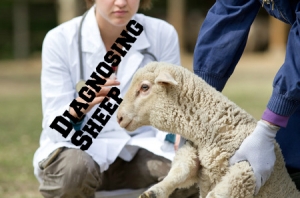 In pastoral ministry, there is a great need for the right diagnosis of sheep. Just as a medical doctor cannot ignore the person in front of them and assume the same treatment will be equally effective for all, so the pastoral worker cannot assume all need the same type of care.
In pastoral ministry, there is a great need for the right diagnosis of sheep. Just as a medical doctor cannot ignore the person in front of them and assume the same treatment will be equally effective for all, so the pastoral worker cannot assume all need the same type of care.
In John 11 Jesus arrived at Bethany after Lazarus had died. Martha and Mary both approached Jesus with exactly the same words, “If you had been here my brother would not have died.” Jesus did not reply with identical statements. He gave Martha practical hope, but Mary emotional empathy. Jesus knew the people he was caring for and treated them as individuals.
In 1Thessalonians 5:12-14, Paul gives instructions to the church, that they should respect and esteem the leadership. And he gives instructions to the leadership. There are people who are idle – they need admonishing or exhorting. There are those who are fainthearted and discouraged – they need encouraging and comforting. There are those who are weak – they will need your devotion and help. And every one of them will need patience.
It would be profoundly ineffective to admonish the fainthearted, help the idle, or to encourage the weak. The fainthearted need care not rebuke. The idle need a change of perspective, not help to carry on as they are. The weak need practical help, not words.
This is one of the great challenges of pastoral ministry, and therefore, of preaching too. We need to grow in sensitivity to the people we care for, and we need to grow in discernment too. Some of us will tend toward a harshness with others that will bruise and harm many of the sheep. Some of us will tend toward a tenderness toward everyone that will actually be unhelpful to some.
We need to listen well, watch carefully, pray diligently, and keep in mind that in pastoral care situations there will be multiplied factors at play – the circumstances of the person, their relational dynamics, their own sinful responses, their triggered responses from previous hurts, their understanding and ability to think through life clearly, their underlying health issues or hidden fears, insecurities, etc.
The truth is that there is not one of us who can see even themselves clearly and fully, let alone others. We are severely restricted in our ability to really understand others. Make sure that pastoral ministry drives you to your knees. Any other position is too elevated.
That is a really special post Peter. It hurts me to recognise how many times I haven’t come from a position on my knees, and yet still find a truly gracious God, who has to put up with my clumsy attempts to understand his children and corrects me with the gentleness and love, empathy and patience I should have been employing myself. Ouch. Thank you for thinking those things through and sharing them.
I am sure we have all failed so many times, Heidi. Thanks for interacting with the site.
Peter,
This post was so helpful to me. I’ve been discussing EGR (extra grace required) members with some fellow pastors this past week and I felt that we all approached the topic from equally defensible positions. Some pastors argued for greater grace while others argued for greater discipline. Sometimes we were talking about different types of sheep, but where the conversation became confusing (I think for many of us) was in terms of helping the idle. In particular, the egr’s we were discussing were those who mistreat, disrespect, and disrupt our ministries as pastors. I don’t know if that constitutes being idle, when those persons are “actively” disruptive. However, your point that the idle need admonishing and exhorting made me think of egr members.
Any thoughts on how we should deal with sheep who try to harm their shepherds? Should we simply endure their attempts to disrupt our ministries with long suffering and grace; or should we address their behavior?
Any advice you can give on this topic would be great!
Andrew
It is such a tough call to make. I think it has to be case by case, but I do see a tendency in myself and in others to avoid confronting. I can look back and see the damage that failing to confront can do. If the attack is simply against the shepherd, then maybe it is right to endure and entrust the situation to God. However, I think when the shepherd is attacked there tends to be collateral harm toward other sheep, and they are the ones we need to protect. Also, having a plurality of shepherds really helps with avoiding a one-target pastor.